Year 6
The English curriculum is built around the three interrelated strands of language, literature and literacy. Teaching and learning programs should balance and integrate all three strands. Together, the strands focus on developing students' knowledge, understanding and skills in listening, reading, viewing, speaking, writing and creating. Learning in English builds on concepts, skills and processes developed in earlier years, and teachers will revisit and strengthen these as needed.
In Years 5 and 6, students communicate with peers and teachers from other classes and schools, community members, and individuals and groups, in a range of face-to-face and online/virtual environments.
Students engage with a variety of texts for enjoyment. They listen to, read, view, interpret and evaluate spoken, written and multimodal texts in which the primary purpose is aesthetic, as well as texts designed to inform and persuade. These include various types of media texts including newspapers, film and digital texts, junior and early adolescent novels, poetry, non-fiction and dramatic performances. Students develop their understanding of how texts, including media texts, are influenced by context, purpose and audience.
The range of literary texts for Foundation to Year 10 comprises Australian literature, including the oral narrative traditions of Aboriginal and Torres Strait Islander Peoples, as well as the contemporary literature of these two cultural groups, and classic and contemporary world literature, including texts from and about Asia.
Literary texts that support and extend students in Years 5 and 6 as independent readers describe complex sequences, a range of non-stereotypical characters and elaborated events including flashbacks and shifts in time. These texts explore themes of interpersonal relationships and ethical dilemmas within real-world and fantasy settings. Informative texts supply technical and content information about a wide range of topics of interest as well as topics being studied in other areas of the curriculum. Text structures include chapters, headings and subheadings, tables of contents, indexes and glossaries. Language features include complex sentences, unfamiliar technical vocabulary, figurative language, and information presented in various types of graphics.
Students create a range of imaginative, informative and persuasive types of texts such as narratives, procedures, performances, reports, reviews, explanations and discussions.
(source: www.australiancurriculum.edu.au)
Achievement Standard
Receptive modes (listening, reading and viewing)
By the end of Year 6, students understand how the use of text structures can achieve particular effects. They analyse and explain how language features, images and vocabulary are used by different authors to represent ideas, characters and events.
Students compare and analyse information in different and complex texts, explaining literal and implied meaning. They select and use evidence from a text to explain their response to it. They listen to discussions, clarifying content and challenging others' ideas.
Productive modes (speaking, writing and creating)
Students understand how language features and language patterns can be used for emphasis. They show how specific details can be used to support a point of view. They explain how their choices of language features and images are used.
Students create detailed texts elaborating on key ideas for a range of purposes and audiences. They make presentations and contribute actively to class and group discussions, using a variety of strategies for effect. They demonstrate an understanding of grammar, and make considered vocabulary choices to enhance cohesion and structure in their writing. They use accurate spelling and punctuation for clarity and make and explain editorial choices based on criteria.
(source: www.australiancurriculum.edu.au)
- Plus Plan
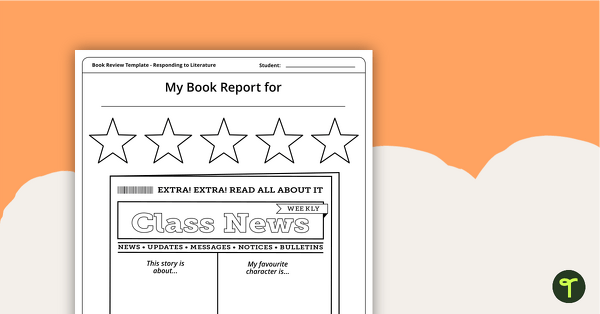
Newspaper Themed - Book Report Template and Poster
A fun newspaper themed poster with 3 book report templates to use when responding to literature.
- Plus Plan
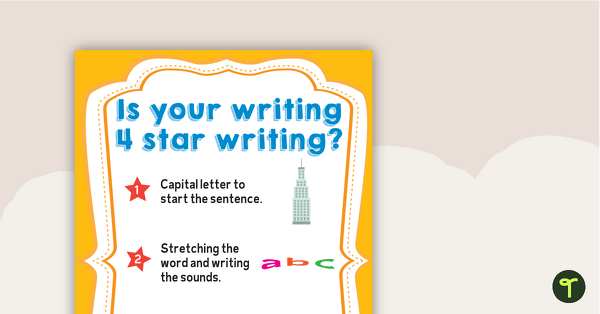
4 Star Writing Poster and Checklist Sheet
Is your writing 4 star writing? Ensure your students are double checking their work with these four stars.
- Free Plan
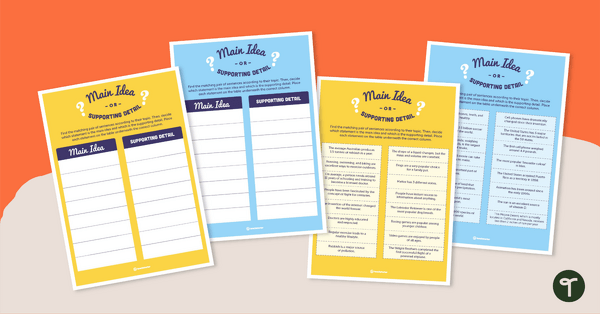
Main Idea or Supporting Detail? – Sorting Activity
An activity for students to determine which of 2 related facts is a main idea and which is a supporting detail.
- Plus Plan
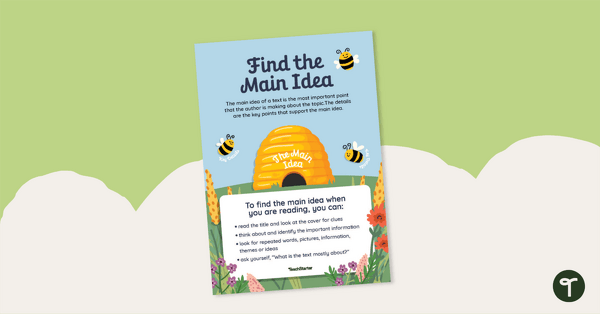
Finding the Main Idea Poster
A poster highlighting how to find the main idea when reading a piece of text.
- Plus Plan
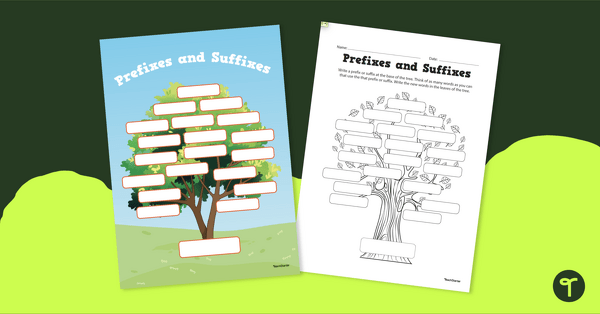
Affix Word Tree - Poster & Worksheet
Encourage vocabulary development with printable affix word tree anchor chart and worksheet
- Plus Plan
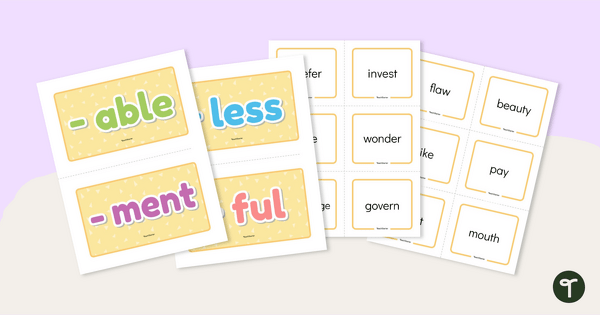
Words with Suffixes - Word Building Activity
Build words by matching the root word to suffixes and recording the new words on the answer sheet.
- Plus Plan
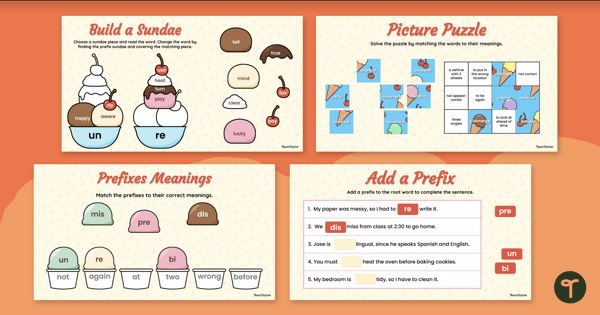
Google Slides Interactive - Prefixes Activity
Practise adding prefixes to words by identifying, defining, and matching them in context.
- Plus Plan
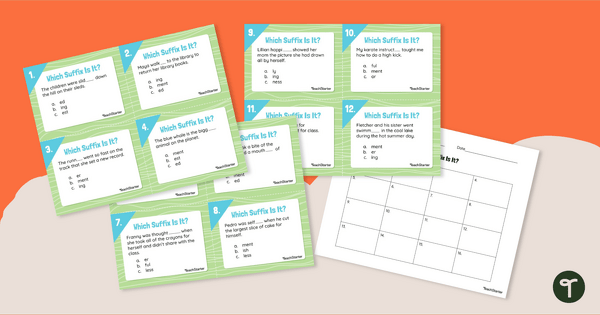
Which Suffix is it? - Task Cards
Practise using suffixes in sentences with a set of printable suffix task cards.
- Plus Plan
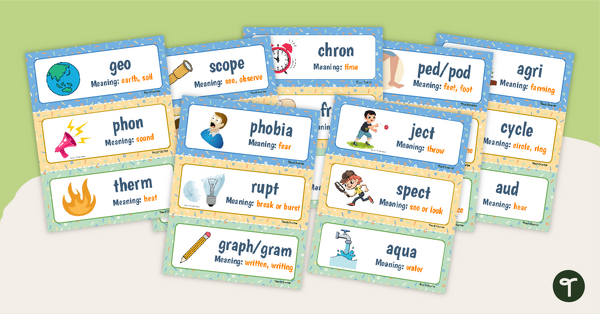
Greek and Latin Root Words - Illustrated Word Wall
Use word wall displays to build student vocabulary with daily exposure to Greek and Latin root words.
- Plus Plan
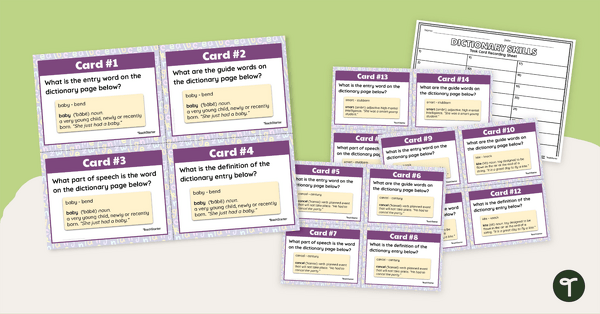
Dictionary Skills Task Cards - Set 2
Practise dictionary skills with this set of task cards.
- Plus Plan
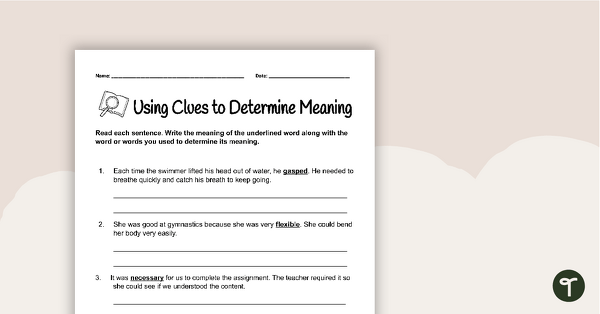
Using Clues to Determine Meaning Worksheet
Practise defining unfamiliar words by looking for context clues within a sentence.
- Plus Plan
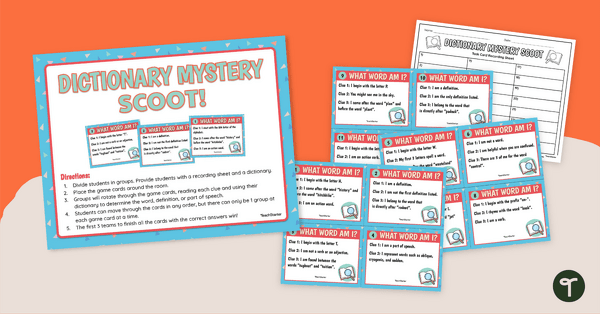
Dictionary Mystery Scoot Game
Practise dictionary skills with your students with this active game.
- Plus Plan
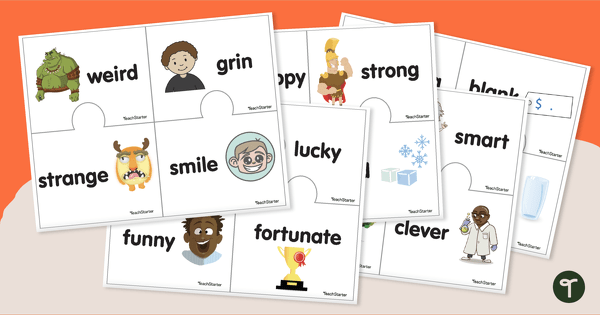
Synonyms Puzzle Activity
Practise using synonyms with a set of 22 synonym puzzles.
- Plus Plan
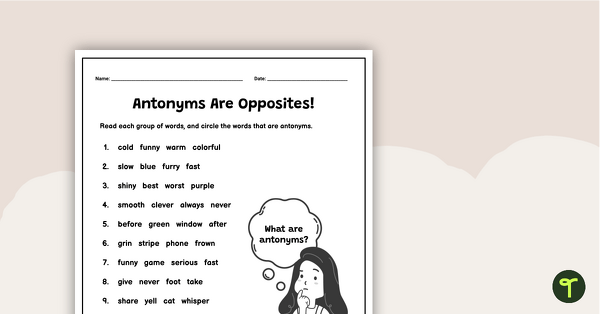
Antonyms Are Opposites! – Worksheet
A worksheet to practise identifying antonyms.
- Plus Plan
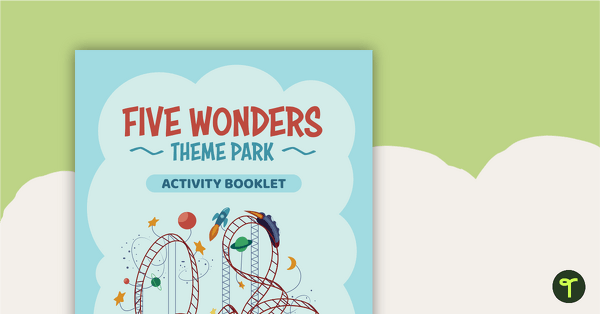
Five Wonders Theme Park: Takeout Takeover – Project
A project for students to create a menu and food truck model for Five Wonders Theme Park based on the Frida's Fiesta menu.
- Plus Plan
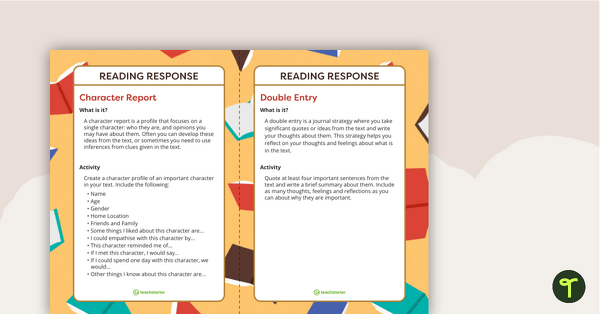
Reading Response Journal Task Cards
9 reading comprehension task cards focusing on a different skill.
- Plus Plan
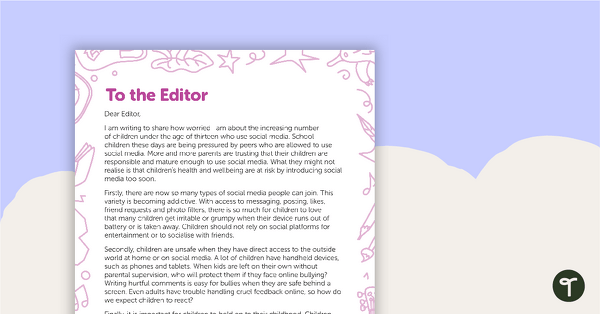
Letter to the Editor: Social Media – Comprehension Worksheet
A comprehension worksheet for a persuasive article about social media.
- Plus Plan
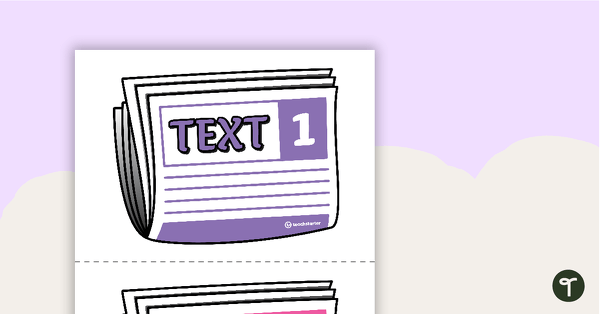
Informative Writing Bump It Up Wall – Year 6
A visual display for your classroom to help students ‘bump up’ their informative writing.
- Plus Plan
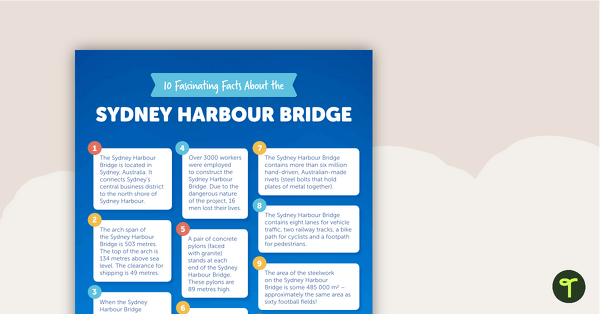
10 Fascinating Facts About the Sydney Harbour Bridge – Comprehension Worksheet
A comprehension worksheet for an article including ten facts about the Sydney Harbour Bridge in Australia.
- Plus Plan
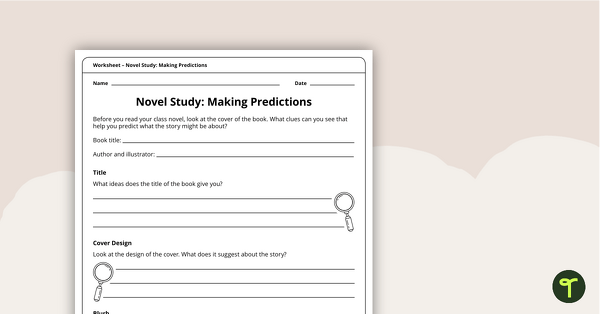
Novel Study – Making Predictions Worksheet
Make predictions before reading a novel with this novel study worksheet.
- Plus Plan
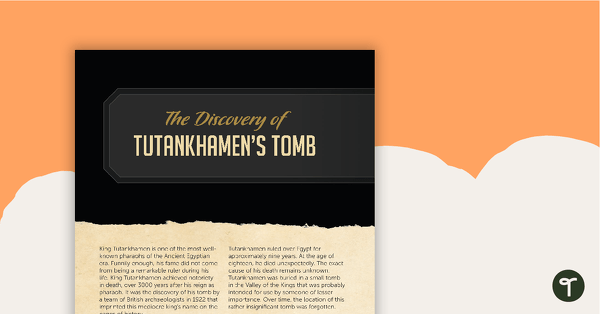
The Discovery of Tutankhamen's Tomb – Worksheet
A comprehension worksheet for an information report from the Year 6 magazine (Issue 3).
- Plus Plan
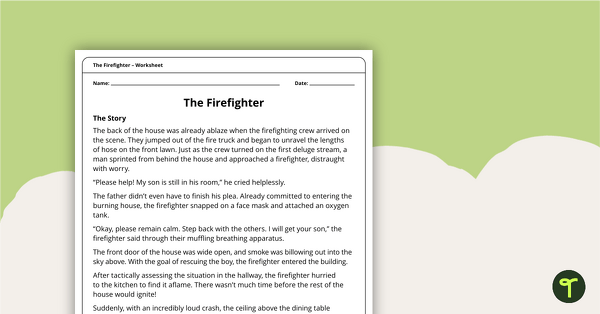
The Firefighter Story – International Women's Day
A story and accompanying worksheet that explores issues regarding female gender stereotypes.
- Plus Plan
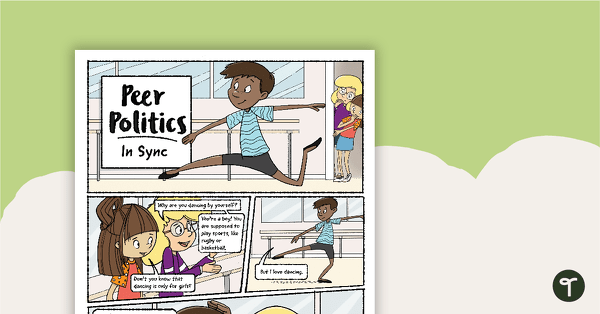
Comic – Peer Politics: In Sync – Comprehension Worksheet
A comprehension worksheet for a comic about encouraging people and their passions regardless of their gender.
- Plus Plan
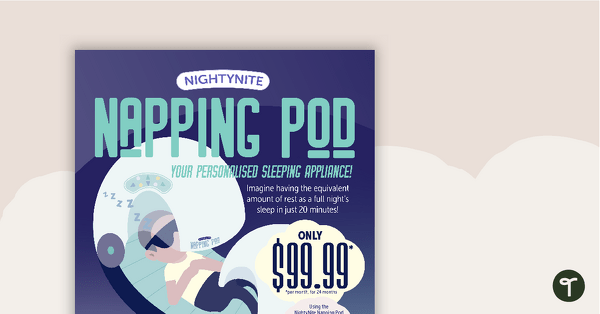
NightyNite Napping Pod – Worksheet
A comprehension worksheet for a fake advertisement from the Year 6 magazine (Issue 3).
- Plus Plan
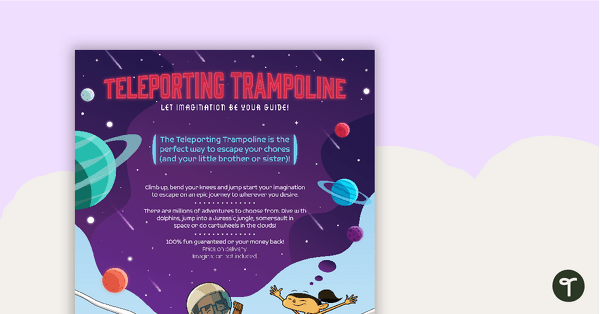
The Teleporting Trampoline - Worksheet
A comprehension worksheet for a fake advertisement from the Year 6 magazine (Issue 2).
- Plus Plan
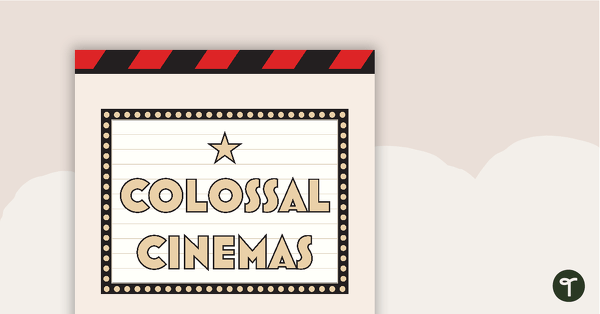
Colossal Cinemas: Movie Merch Mayhem – Project
A project in which students can design a merchandise line and create a movie trailer for a chosen movie to screen at Colossal Cinemas.
- Plus Plan
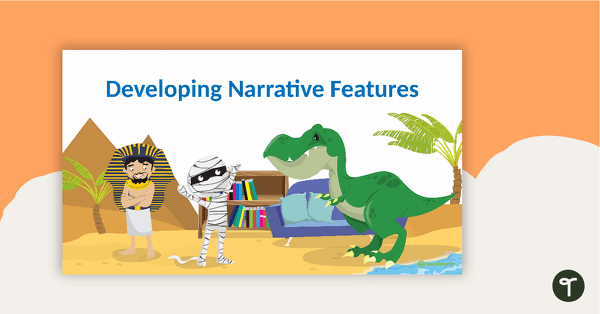
Developing Narrative Features PowerPoint - Year 5 and Year 6
A 26 slide editable PowerPoint template to use when teaching your students about the features of narrative texts.
- Plus Plan
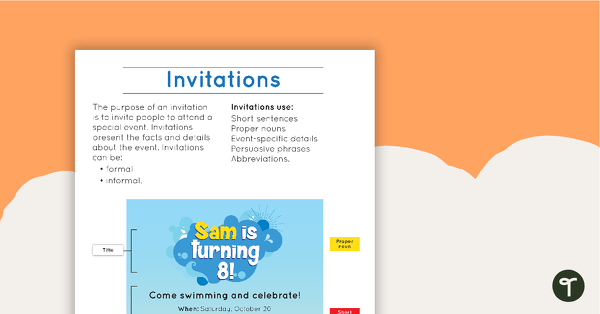
Invitation Text Type Poster With Annotations
A poster about invitations, including an annotated example.
- Plus Plan
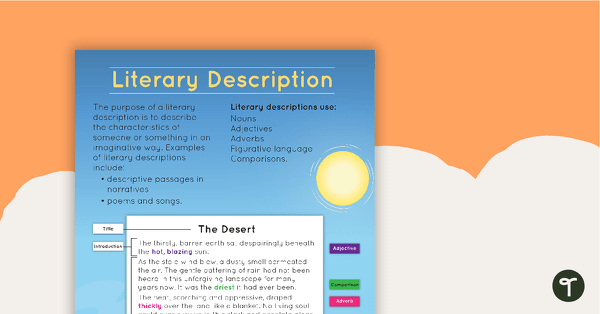
Literary Description Text Type Poster With Annotations
A poster about literary descriptions, including an annotated example.
- Plus Plan
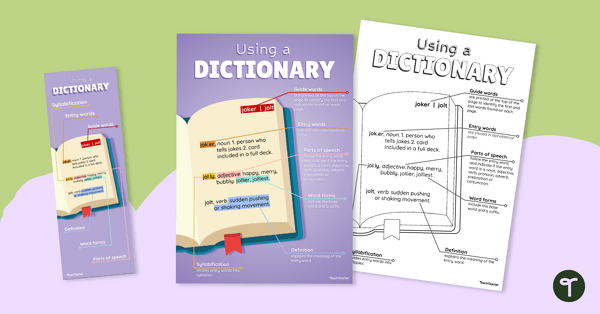
Using a Dictionary Poster and Bookmark
Learn about the parts of a dictionary with this poster and bookmark combo.
- Plus Plan
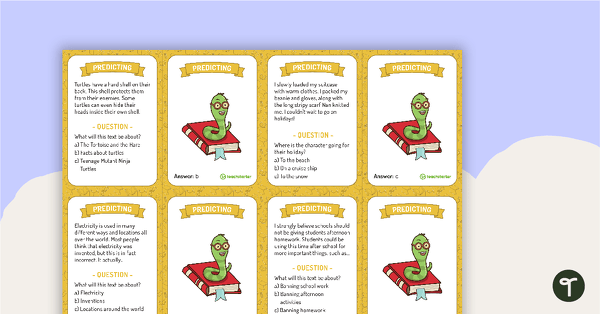
Out of the Book - Comprehension Board Game
A fun comprehension strategy board game for students to play during literacy rotations.
- Plus Plan
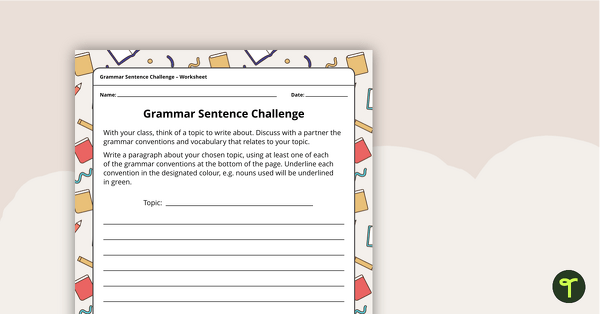
Grammar Sentence Challenge Worksheet
Practise using different parts of speech in a written piece of text with this grammar activity.